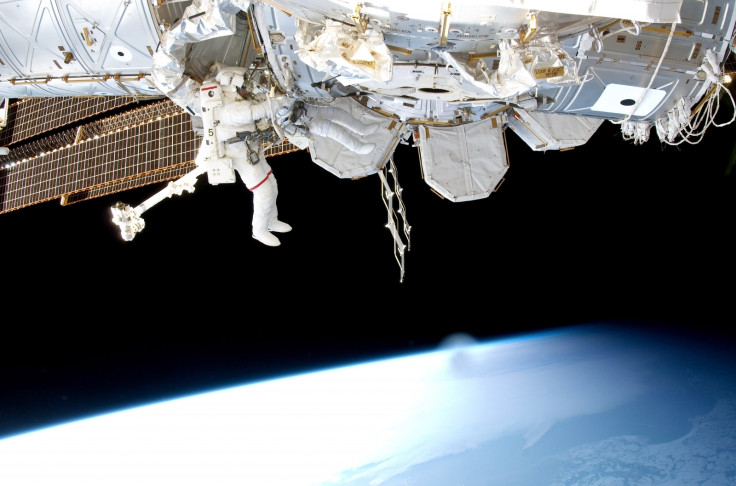How does space travel affect the eye? Astronauts' retinal nerves found damaged after months in orbit
The finding comes as Nasa continues to prepare for missions to Mars and beyond.

As Nasa continues to prepare for manned deep-space missions to Mars and beyond, a new study has highlighted a major concern for the agency – the affect of long-term space travel on astronauts' retinal nerves, which ultimately degrades their ability to see.
Nearly 50% of astronauts report cases of vision impairment after spending a prolonged time in space, sometimes months or maybe years after returning to Earth. The cases vary from person to person but the new study, published in the journal JAMA Ophthalmology and reported by Live Science, factors something that could be the key trigger for these problems.
After studying pre- and post-flight optical scans of 15 astronauts who had spent around six months in space, researchers noted a significant change in their optic nerves, the delicate transmitter that takes visual information from the retina to the vision centres of the brain, helping a person register what they see.
As per the report, the analysis of Bruch membrane openings, the gaps at the back of the eyeball through which these nerves travel, revealed that their delicate tissues were significantly swollen and warped.
The critical damage was noted weeks after the astronauts' return to Earth and has been touted as the first direct observational evidence that highlights the critical effect of long-term space travel on optic nerves. Some of the study subjects already had vision-related problems but the patterns in the deformity could not be ignored.
Though the actual cause of this condition remains unknown, the researchers believe it could be due to the difference between normal and cosmic pressures. According to them, when astronauts reach space, the pressure increases and the eyes take their time to adjust to that change. However, when they come back to Earth, the pressure goes down suddenly, which the eyes fail to deal with.
As of now, it cannot be said for certain if this is the exact reason, but whatever it may be, Nasa will have to study this problem carefully before going ahead with its deep-space missions. The success of any manned program, whether to the Moon, Mars or any other distant planet, will depend on astronauts and how they react to changes in their surroundings several thousand kilometres away from Earth.





